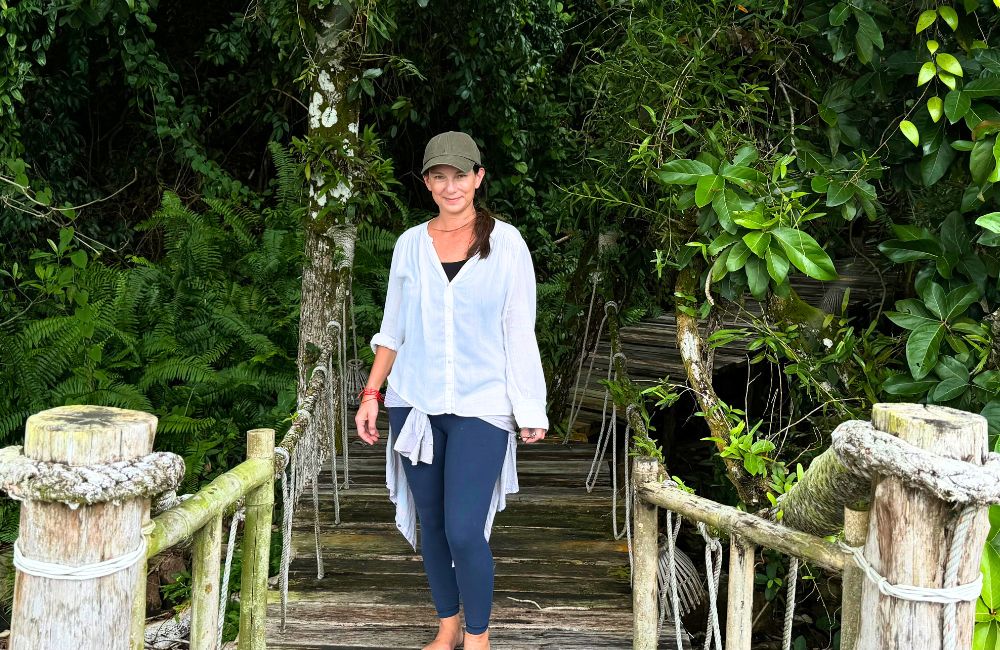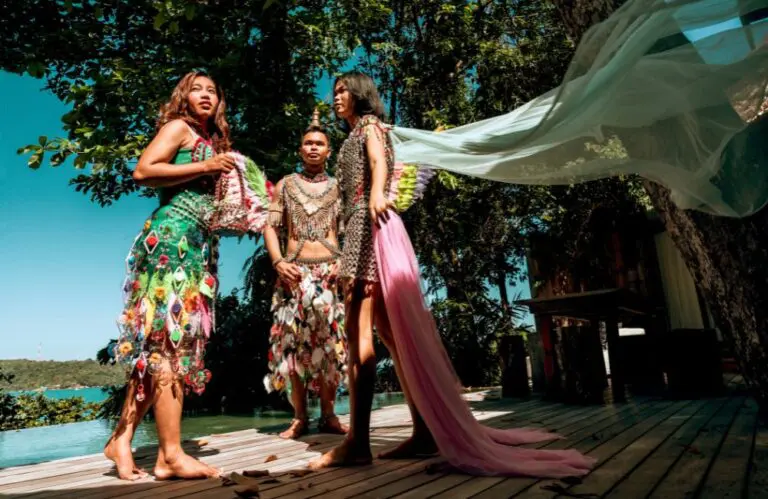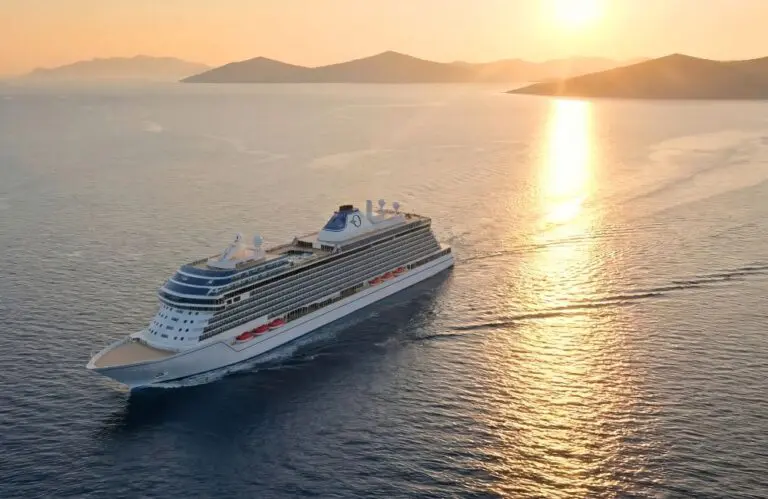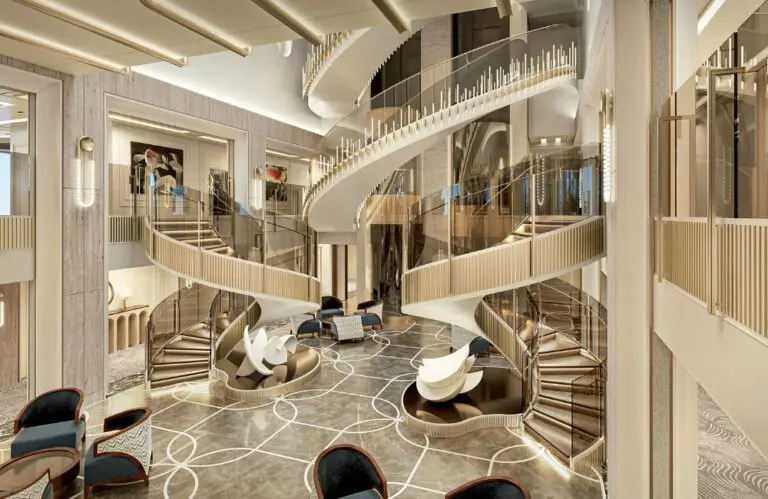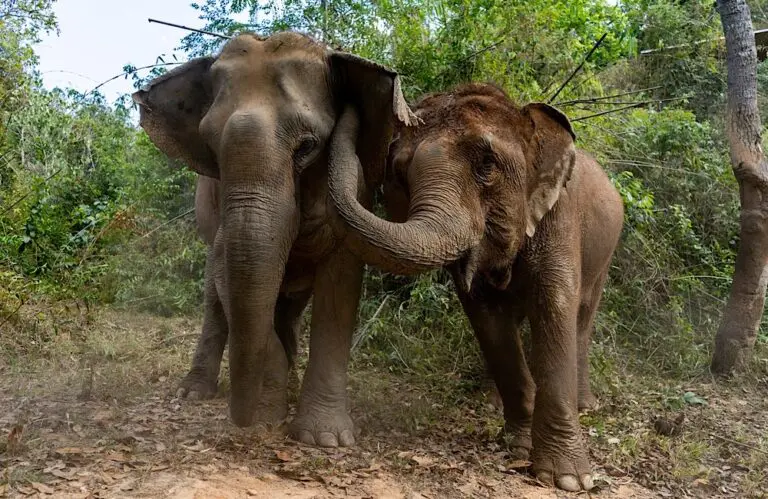When you talk to Melita Koulmandas, you can hear the passion in her voice for the place she now calls home where she pioneered conservation efforts almost two decades ago – and she has no plans of slowing down.
It was 2005 and Koulmandas was travelling around Cambodia with her boyfriend when she came across the Koh Rong Archipelago.
“From the mainland, you could see the islands on the horizon, and I managed to find a local fisherman to take me there. It took more than five hours to get there, and we spent two weeks exploring the islands.
“On the last day, we stopped alongside a smaller island and I got talking to the head of a small fishing business who explained how the waters were being overfished. After a while, he told me he had land on the mainland and wanted to return, and then he just asked me if I wanted to buy his island.
“I wasn’t intending on buying an island, but I said yes and he told me how much it was (US$15,000), so I took the boat back to the mainland, went to a law firm and went back the next week with a brown paper bag full of money. He headed back to the mainland and there I was with this island.”
Seven years later, in 2012, she opened the doors to what is now Song Saa Private Island, which has since gone on to win a string of awards, including making Condé Nast Traveller’s 2024 list of the best hotels; Eco Wellness Resort of the Year at Compare Retreats’ Luxury Wellness Travel Awards 2024 and Cambodia’s Leading Villa Resort at the 2024 World Travel Awards.
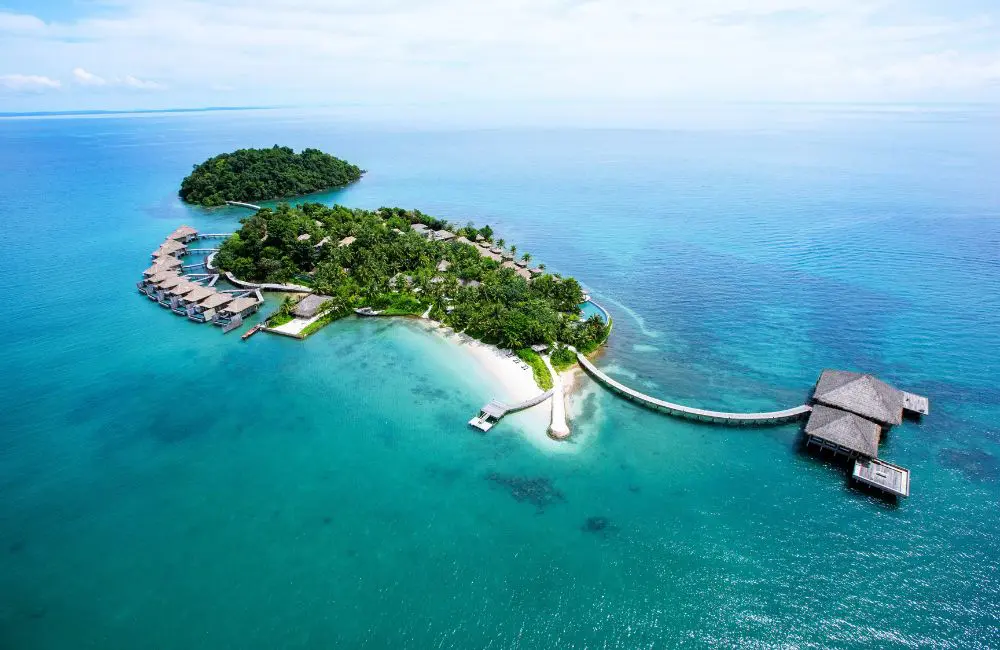
A seven-year transformation
When Koulmandas first took over the island, all the trees had been logged and there were as many as 50 fishing boats ‘parking’ outside all day and night.
“What would have once been a thriving ecosystem had degenerated. The reef system was dying from fishing boats emptying their pumps, and the island was covered in rubbish and completely cleared of trees. But a few families who worked on the fishing boats were living there, and I offered for everyone to stay and we just started picking up rubbish.”
“I had no vision to build a hotel, but started cleaning up and getting to know the village chiefs on the nearby main island, and I learned that most of the overfishing was coming from Vietnam and Thailand… so it was from these discussions that we decided to co-create the country’s first marine park.”
Her efforts, in collaboration with the local chiefs, formed Cambodia’s first protected marine park.
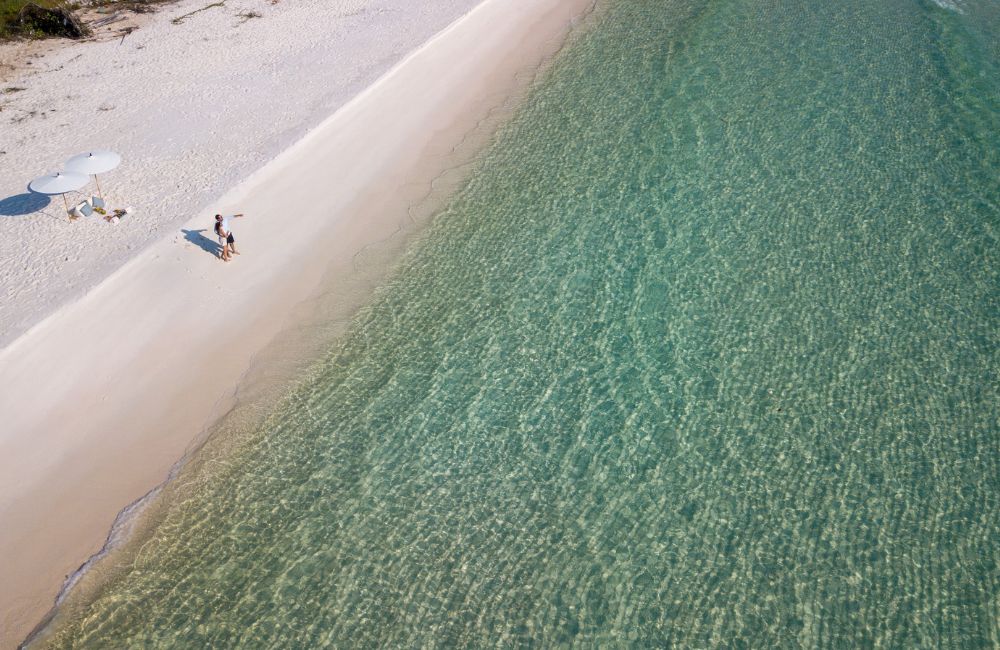
The goal was then to ensure no one fished there so they could repopulate the marine life.
“It was overwhelmingly supported by the local community, and within 18 months fish stocks replenished. We saw spotted stingrays and baby barracuda… and we then went on to work with various Government ministries. There were working groups set up and over the next five years, an experimental six-hectare ‘no take’ zone grew to a 524 square kilometre national marine park.”
She says it was only then they saw the island truly come alive with flora and fauna, and the flow-on effect was “something I’ll never forget”.
“By paying local communities, mainly the local women, to pick up rubbish, houses were being done up, and they went from tiny palm thatches to ventilated timber structures. The communities were only 10 years old as they were only just post Khmer Rouge and children were being born as the first generation into these communities.”
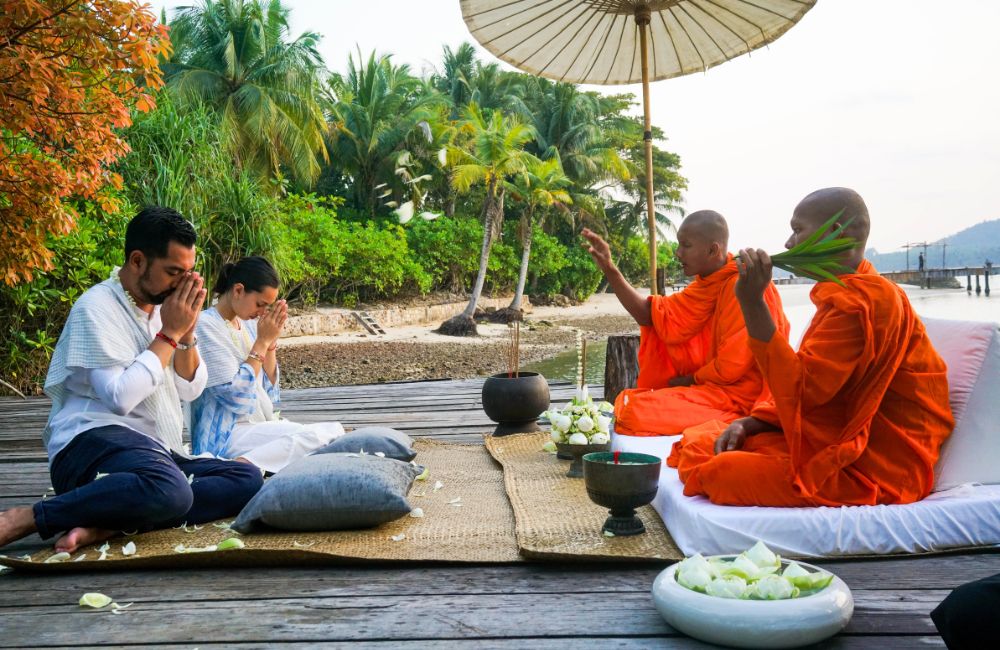
The birth of Song Saa
It was only once Koulmandas had a strong relationship with the local community and chiefs, and the island was rejuvenating, that she contemplated building Song Saa.
“The idea wasn’t ‘let’s build a hotel and then see what good we can do’. The concept itself was woven into the very fabric of the place, looking at it through the lens of regenerative tourism… asking how can we be led by example and inspire guests who travel here to look at the world differently.”
She says her main motivation was to create something that had a “sense of place”.
“Back then, high-end experiential tourism didn’t exist, but in my mind, it was so important that those visiting felt like it was a privilege to be here.”
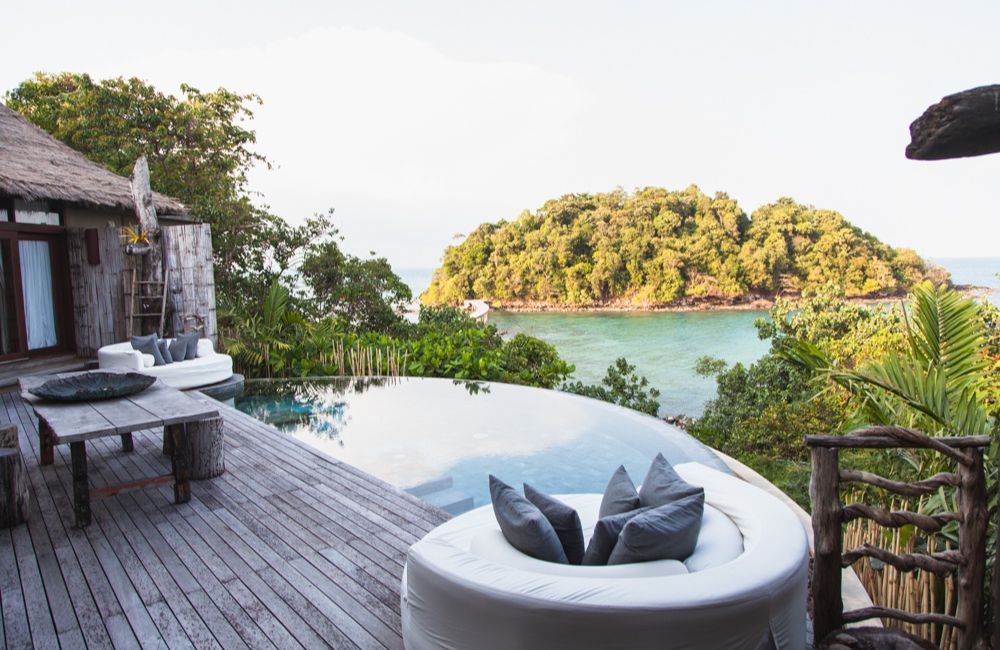
The result was a property built sustainably using local driftwood and salvaged wood, and Song Saa became one of the first properties to genuinely and authentically celebrate the connection and partnership with the local community.
“Visits to the local community were done by first consulting the locals, and ensuring there was a direct positive impact on the community. It was always important to have a positive reciprocal relationship.”
This area of community engagement is something Koulmandas is particularly passionate about.
“We need to make a shift in the thinking from positive impact tourism. So much awareness has been raised now, and everyone wants to be part of this, which is great, however, instead of focusing on how tourism can benefit communities, it’s about fostering reciprocal partnerships.
“It shouldn’t be about the hotel’s success. The community needs to be a partner in the hotel’s decision and impact. We can’t just barge our way in just so the hotel can define what it thinks success looks like, because that might not be right for that community.”
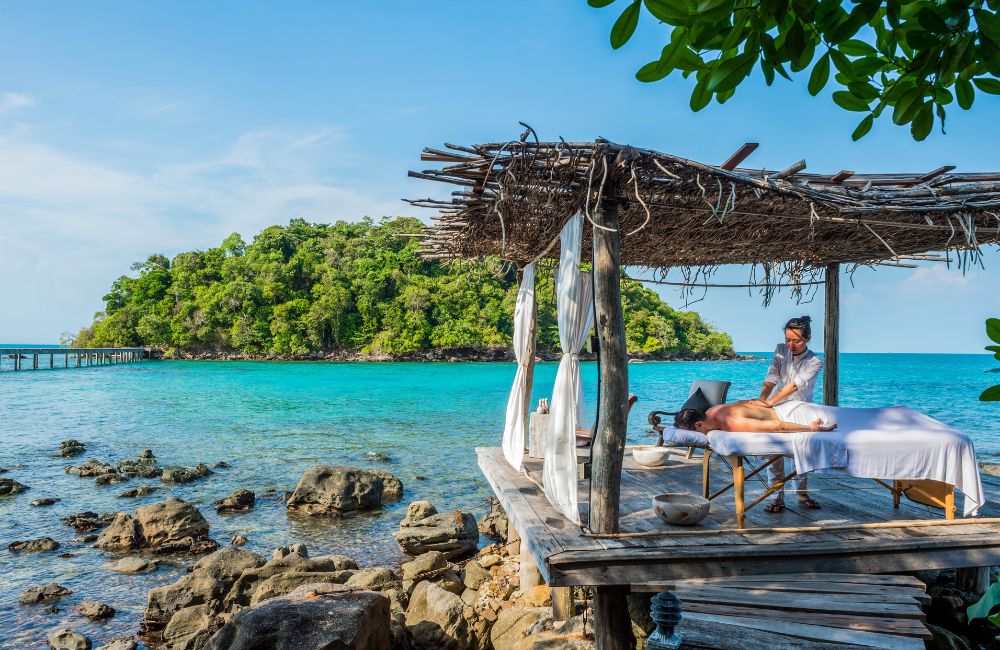
Looking to the future
Koulmandas set up an NGO called the Song Saa Foundation to have an autonomous entity looking at the marine work it does, and the results have been nothing short of remarkable.
“In the last 12 months, we discovered a huge seagrass bed that no one knew existed. It’s exciting because seagrass is a far more effective carbon sink than rainforest canopies … so the teams are measuring the bed, square metre by square metre, to identify and catalogue the different species of seagrass and marine life living there.
“Our goal is to help protect the area, in partnership with the local communities, and our guests will soon be able to go with the team and snorkel here to raise awareness and funds to preserve and protect it.”
Wellness is another area she wants to build on.
“Our wellness concept is based on the Buddhist philosophy built around the three pillars of stillness, healing and blessing and we’re about to launch an expansion of this. This will include a raw bar, so guests can go on foraging workshops for medicinal leaves and flowers, learn about endemic species and then take the ingredients back and the chef can create dishes with them using these ingredients.’
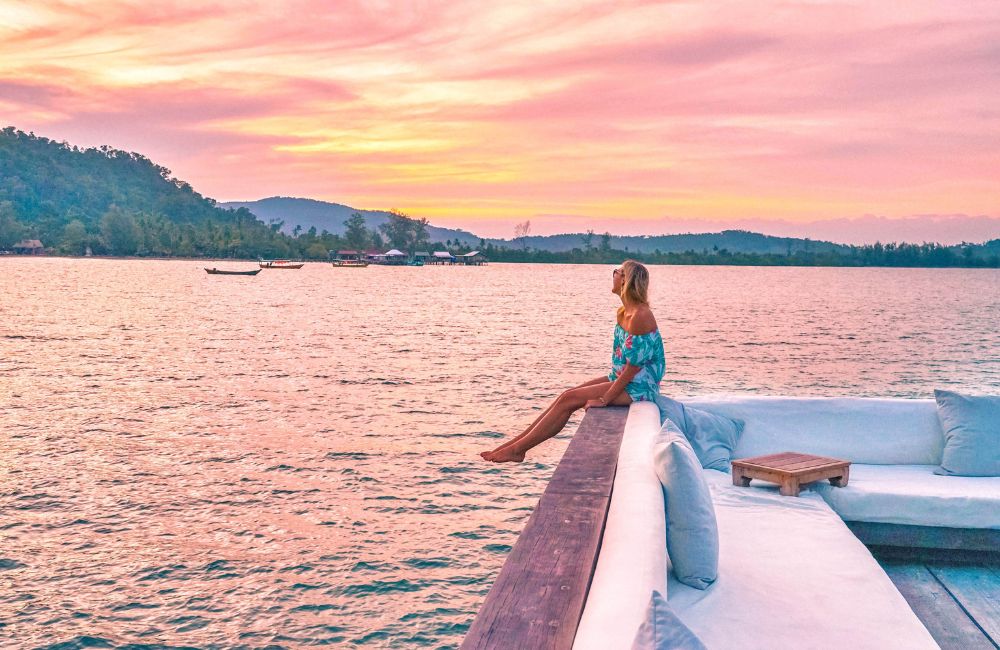
On the back of Song Saa’s success, Koulmandas is now looking at replicating the idea in Northern Cambodia.
“I’m taking everything I’ve learned here and trying to do this with intention. And I wanted a denigrated site so we could regenerate and restore it… and work with nearby communities.
“The new property is between the Phnom Kulen mountain range and Angkor Wat and we’re regenerating forest there, working with the local community and looking at it through the lens of ‘seven generations’ asking ourselves, so where do we want it to be in seven generations from now, but it’s a few years away!”
She is humble about her achievements, but she says she’s incredibly proud of it all.
“When I facilitate workshops on the island with the team to talk about how we can evolve, we always talk about our roles as simply stewards and guardians here.
“That’s how we see ourselves. It’s a partnership with the local community and we are all privileged to be here.”
For more information, visit Song Saa.



